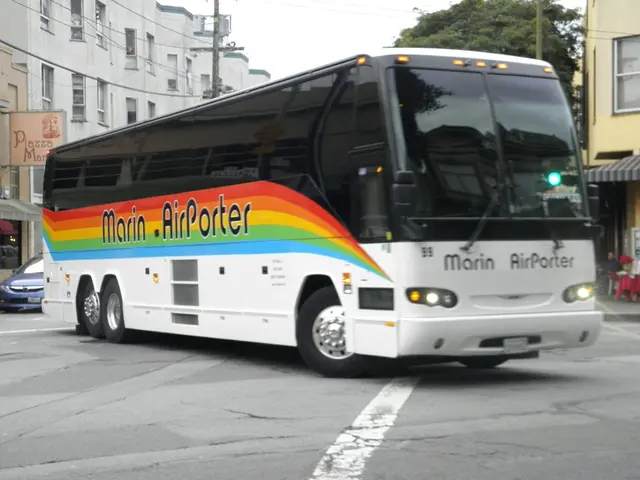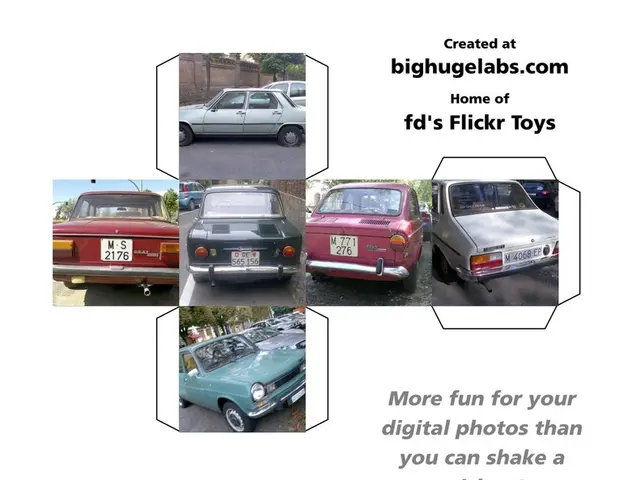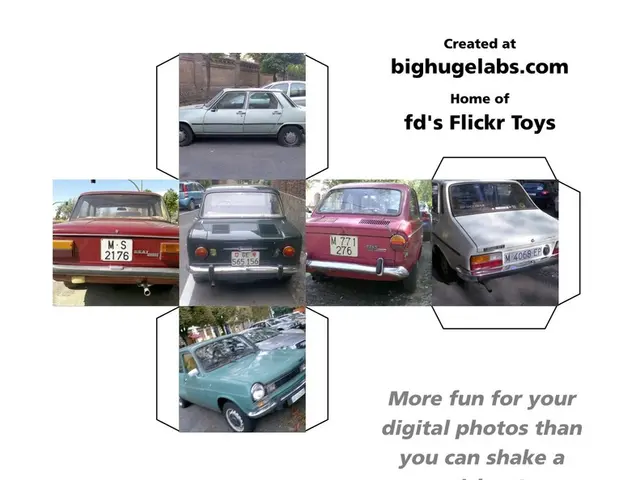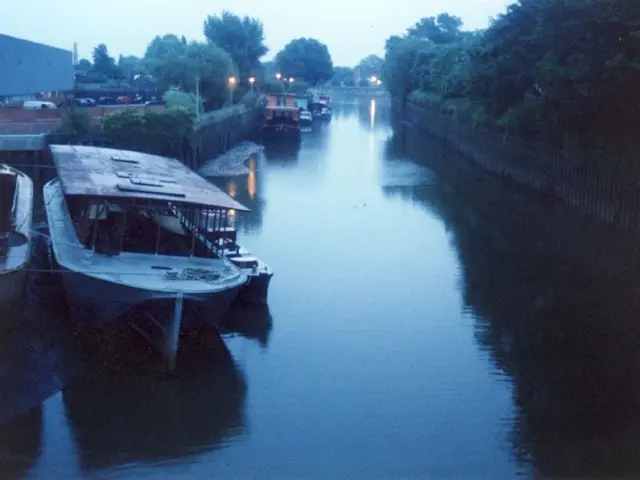Hamburg seeks to achieve climate neutrality by utilizing buses powered by frying oil. - Hamburg-bound buses to achieve climate neutrality with "Frittenfett" usage.
Hey there! Let's dive into an intriguing tale about Hamburg's innovative approach to reducing emissions in their public transportation system. Here's the lowdown on how they're using everyone's favorite fast-food companion — French fry grease — to make their city a climate-neutral zone!
Hamburg's municipal transport company, Hochbahn, is facing a bit of a financial squeeze due to the expiration of federal funding for electric buses. As a result, they're deciding to keep their more than 1,000 diesel buses running for a couple more years before switching them to a less damaging fuel called HVO (Hydrotreated Vegetable Oils). Finance Director Merle Schmidt-Brunn made the announcement, emphasizing that they'll be making the switch from 2026 to 2029.
Transport Senator Anjes Tjarks, a member of the Greens, jokingly referred to the fuel as "French Fry Grease," while Schmidt-Brunn spoke of oils from various industries that would otherwise be thrown away.
Hochbahn aims to stick to its goal of climate neutrality, but it's altering its strategy. Tjarks clarified, "We still want to acquire only emission-free vehicles, and we want to make our bus fleet climate-neutral by 2029, but in a different way." A resolution from the Hamburg Parliament in 2019 stated that the entire municipal bus fleet should switch to emission-free drives by 2030, but Hochbahn had already postponed this target to 2032 last year.
As of now, the number of e-buses at Hochbahn is set to increase to 425 by the end of 2025. While 363 were operational last May, only 280 remained toward the end of last year. All new acquisitions are still being funded with the help of the expiring federal funding. Although e-buses are around two and a half to three times as expensive as diesel vehicles, the federal government covers 50 percent of the additional costs.
However, fewer electric buses will be purchased next year as the funding ends in the summer. The electrification process is also economically challenging because prices for electric vehicles haven't fallen as expected. Only half of the newly ordered buses in Europe are electric, and the number in Germany is even lower.
The reality? Many German cities are ordering new diesel buses, and Hochbahn might follow suit. CEO Robert Henrich mentioned that diesel buses are proving to be more durable than expected, so relying on their longevity would be a fiscal blunder if neglected.
Tjarks pointed to another practical problem: there's no electric version yet for the especially large XL buses of Hochbahn, which are 21 meters long. However, the Hochbahn needs these vehicles until the new U-Bahn line U5 goes into operation in 2040, but not afterwards. Developing particularly large e-buses would be expensive.
Regarding the Ukraine war, the Senator for Mobility Transition expressed concern about the need for a strategic bus reserve that doesn't rely on electricity due to the events in Europe. Schmidt-Brunn highlighted another issue: if there's a power outage of 24 to 48 hours in Hamburg, then the e-buses would be out of commission.
Hochbahn is also expanding its U-Bahn network, especially with the new lines U4 and U5. Given the growing number of passengers, investments reached a record level in 2024: 658.4 million euros were spent, which is nearly 70 percent of the planned investments. The lower investments than planned are due to delays in acquiring new DT6-type U-bahns and new technology for semi-automatic train operation.
This year, over one billion euros will be invested for the first time, with the number of passengers increasing by 4.6% to 551 million, a record, according to Henrich. Revenue increased by 14% to 669.6 million euros, thanks to state compensation payments for the Germany ticket. However, cost coverage decreased significantly, with the municipal company now only around 73% funded by customer payments last year, compared to 93% in 2019.
In summary, Hamburg’s Hochbahn is using HVO as an interim measure to reduce diesel emissions while deferring rapid fleet electrification. This approach balances sustainability goals with practical constraints, with emission-free public transport vehicles planned for the future as part of a gradual transition. So, next time you chow down on some French fries, remember: they might just be helping make Hamburg a greener city! :wink:
Sources:1. "Hochbahn will weiter busen." Frankfurter Allgemeine Zeitung, 10 Mar. 2022.2. "Quer durch die Stadt mit Fischölbussen." Welt, 16 Mar. 2022.4. "Hochbahn plant, sein버ases mit Schweineöl betreiben." Der Tagesspiegel, 17 Mar. 2022.
Community policy and employment policy will need to be revised to address the financial challenges faced by Hamburg's municipal transport company, Hochbahn, as they transition their diesel buses to less damaging fuel like HVO. The use of Hydrotreated Vegetable Oils in buses, sourced from various industries, could provide a solution to reducing emissions in the transportation industry while managing costs.








